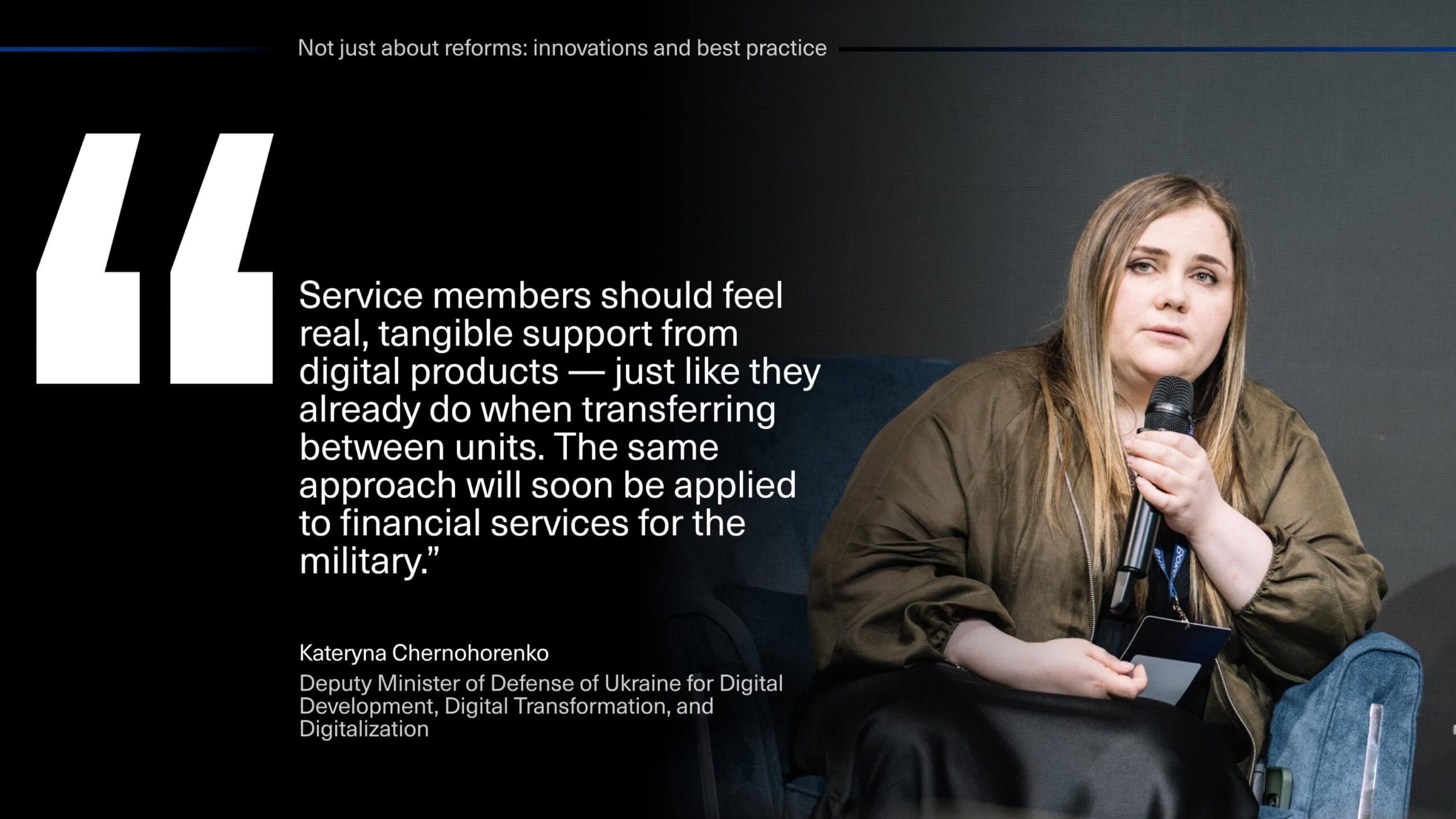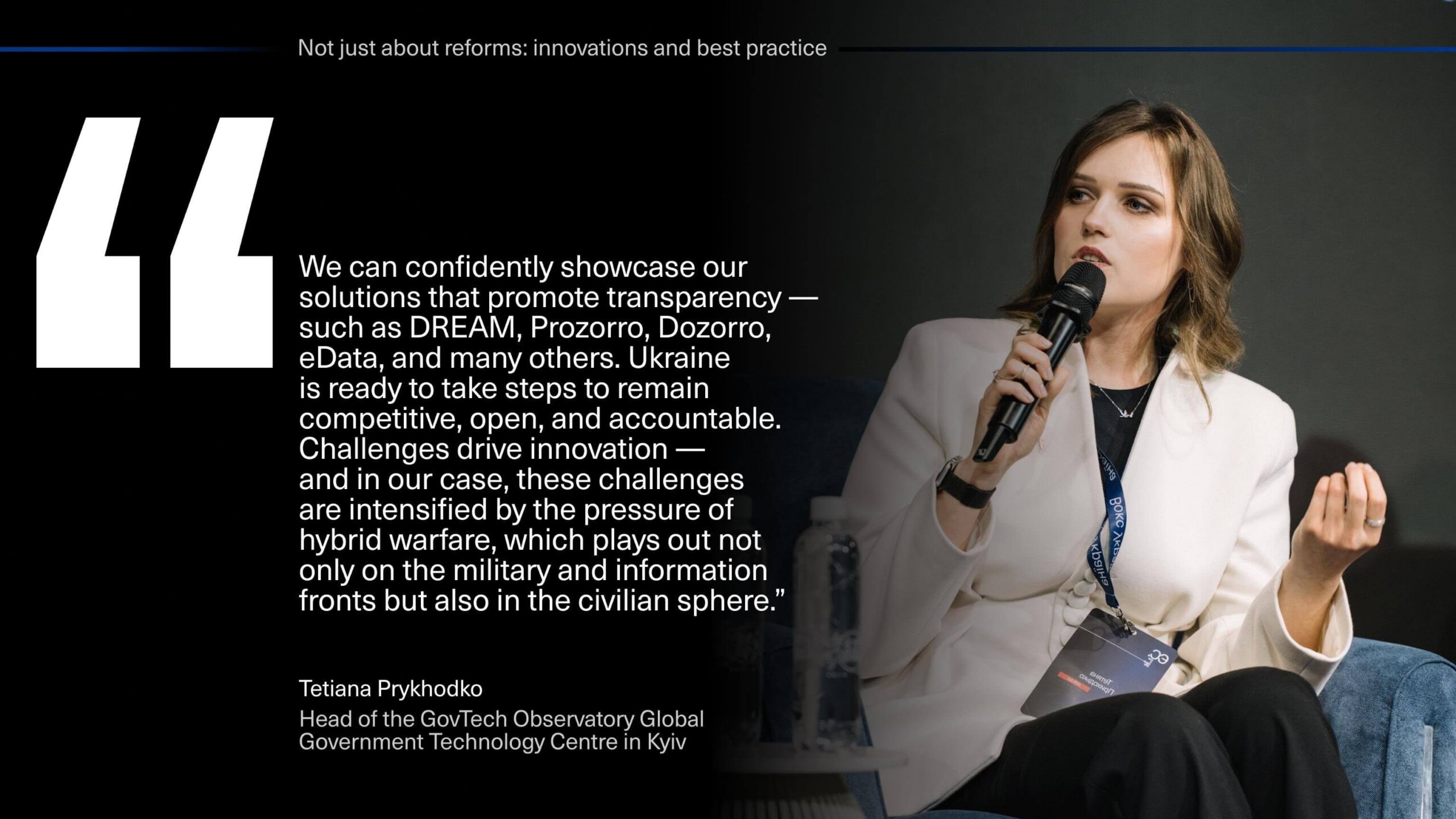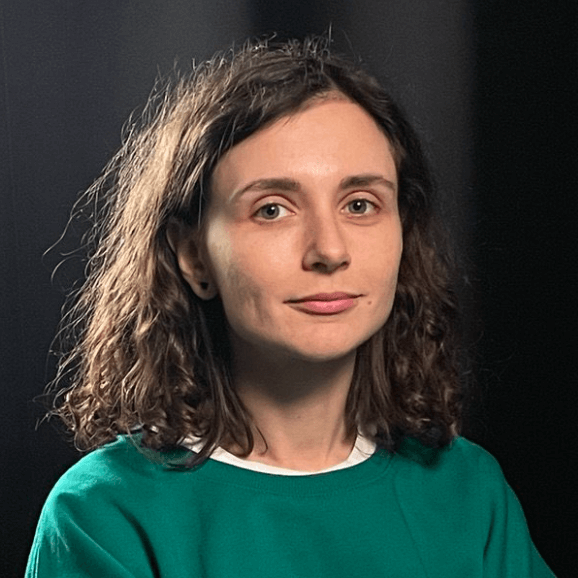The final panel of the “EU. But There Is One Twist” conference brought together experts working at the intersection of government, innovation, and technology. The discussion focused on GovTech and DefenseTech: how digital tools are reshaping systems, whether Ukraine can become an exporter of innovation to the EU, and how the state can support innovative solutions.
The panel featured Kateryna Chernohorenko, Deputy Minister of Defense of Ukraine for Digital Development, Digital Transformation, and Digitalization; Artem Mykhailiuk, Advisor to the Minister of Digital Transformation; Tetiana Prykhodko, Head of the GovTech Observatory at GGTC Kyiv; and Karina Kudriavtseva, Head of Strategic Development at the EIT Community Hub. Vladyslav Hreziev, founder and CEO of the recruitment platform Lobby X, moderated the discussion.
Special thanks to Anastasiia Sosnova, Communications Manager at Vox Ukraine, for preparing this article based on the speakers’ remarks.
The event was organized by Vox Ukraine with support from the National Endowment for Democracy (NED) on May 23, 2025. A recording of the conference is available at the link.
Kateryna Chernohorenko spoke about the ongoing digital transformation within the defense sector — from electronic reports to the upcoming rollout of smart contracts:
“The next major release in recruitment will be the smart contract. Those eligible for military service will be able to browse available positions, choose a brigade, read about the command staff, and even sign a contract with the army right on their phone. Technologically, this is already possible. We live in a world where you can transfer money just by shaking your phone. I believe it’s time to bring that kind of change into the army.”
She also outlined plans for Army+ as an ecosystem of services designed for military service members and their families:
We want to follow the ecosystem model. Army+ will include sections like ‘My Health,’ ‘My Finances,’ and ‘My Tech,’ as well as services like eHousing. Together with Diia, we’ve already added ‘Marriage Online’ — and there’s more to come.”
“Service members should feel real, tangible support from digital products — just like they already do when transferring between units. The same approach will soon be applied to financial services for the military,” said Kateryna.

Artem Mykhailiuk spoke about the state’s role in developing defense tech innovations and the opportunities available to Ukrainian developers. He pointed to Brave1 as a successful example of government-supported innovation:
“Brave1 was launched two years ago as a platform where developers working on UAVs, robotics, and other military technologies can receive support. While most people associate it with grants, the platform also offers access to expertise, mentorship, and collaboration with the Security and Defense Forces, other manufacturers, and investors. All defense tech developers can access these resources as a service. In addition, thanks to its in-house expertise and analytics, Brave1 is able to independently identify which products should be prioritized to address the most pressing challenges on the battlefield. It actively promotes the development of these targeted solutions. This reflects the proper role of the state: not to compete with business, but to stay out of the way where necessary — and step in to support innovation where it can truly make a difference.”
Tetiana Prykhodko emphasized that Ukraine’s experience in public-sector innovation is not only unique but can also influence the global GovTech agenda. She noted that more than 200 GovTech solutions have already been implemented in Ukrainian public governance, and the country now has a strong regulatory and institutional foundation for digital development. This includes the WINWIN Strategy for Digital Innovation Development until 2030, support for the startup ecosystem, and the rollout of e-residency.
“We can confidently showcase our solutions that promote transparency — such as DREAM, Prozorro, Dozorro, eData, and many others. Ukraine is ready to take steps to remain competitive, open, and accountable. Challenges drive innovation — and in our case, these challenges are intensified by the pressure of hybrid warfare, which plays out not only on the military and information fronts but also in the civilian sphere.”

Tetiana stressed that Ukraine is no longer only a recipient of external expertise — it is now in a position to share its own practices, particularly in areas such as education, digital transparency, and open data.
Karina Kudriavtseva shared her perspective on how Ukraine is perceived within the European innovation landscape. Over the past three years, Ukraine has taken a leading role in engaging its entrepreneurs with European programs and partnerships. Many Ukrainian innovators are sharing their knowledge rather than seeking support.
“Military technology is clearly the top priority right now, but it’s equally important that we lay the groundwork for developing civilian solutions to be ready for reconstruction when the time comes. This involves not only creating new products but also ensuring that both the state and private sectors are prepared to operate in the EU market and adapt their products and approaches to European standards. The EU is our strategic partner, and the time to meet its requirements has already come,” noted Karina.
She emphasized that alongside the development of defense technologies, it is just as critical to support civilian innovations — those that will be essential for the postwar recovery.
Photo by Kateryna Lashchykova
Attention
The author doesn`t work for, consult to, own shares in or receive funding from any company or organization that would benefit from this article, and have no relevant affiliations



